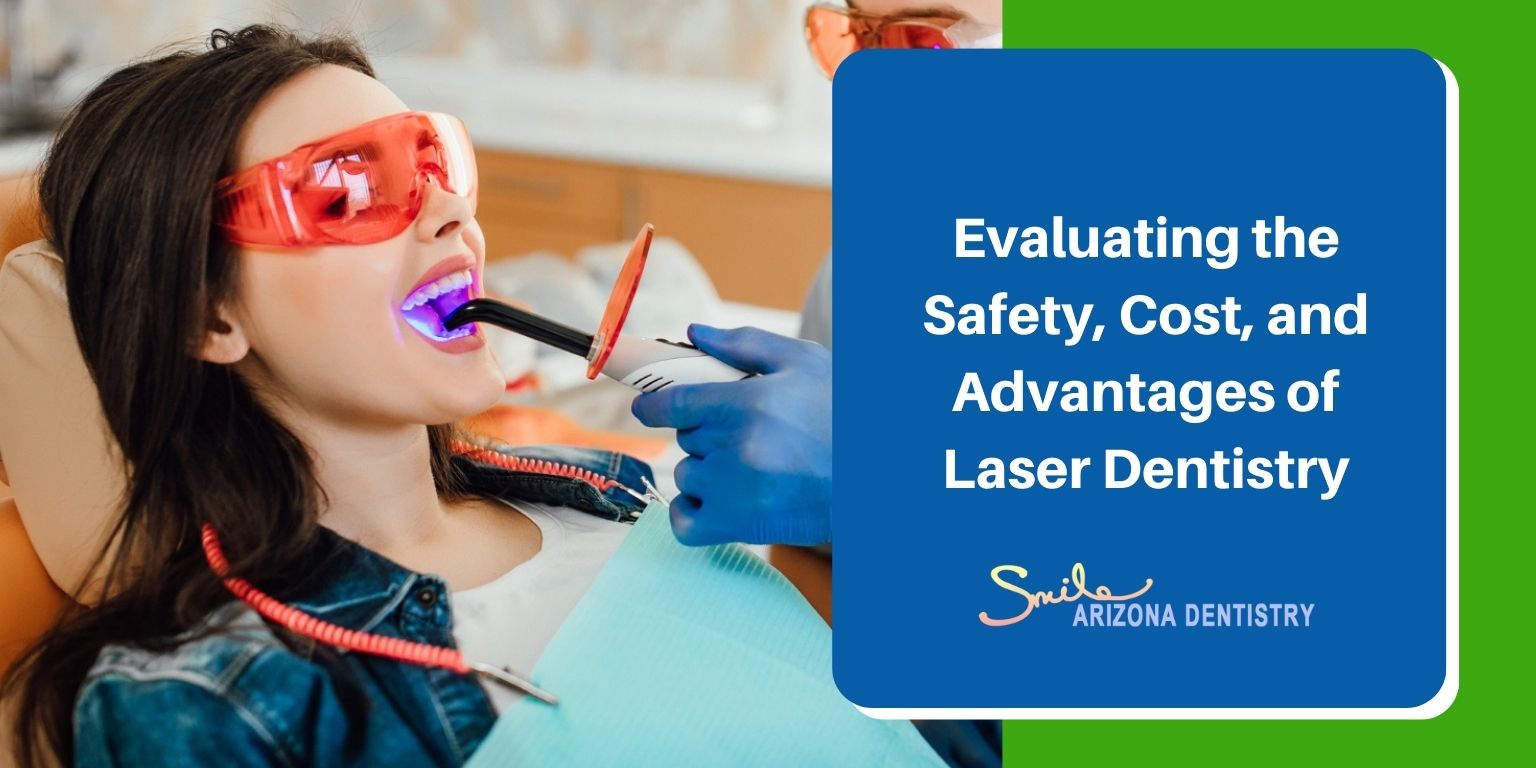


Laser dentistry has emerged as a cutting-edge technology revolutionizing dental care. By utilizing focused beams of light, dentists can perform a wide range of procedures with increased precision and efficiency. However, it carries certain risks and considerations like any other contemporary technique. This blog will delve into the costs, benefits, risks, and other details surrounding laser dentistry to give you a detailed understanding of this transformative dental laser treatment!
Laser dentistry is the technique of using laser technology in various dental operations. It entails applying expert-targeted light beams to perform dental treatments on soft and hard tissues. The laser used in dentistry emits energy in the form of light, which can be targeted to the affected areas with remarkable accuracy. Laser dentistry is commonly used for gum disease treatment, cavity detection, teeth whitening, gum contouring, laser dental cleaning, and oral surgery. It is an efficient and effective replacement for precarious traditional dental procedures.
Advanced Laser Dentistry offers a wide range of procedures that fall under the—
Soft tissue laser procedures are employed for various treatments such as gum recontouring, tooth decay, removal of oral lesions, frenectomies, and more. The laser technology in these procedures enables precise and minimally invasive treatment of the soft tissues in the oral cavity. Such laser procedures offer benefits like reduced bleeding, low downtime, and minimal patient discomfort, making them valuable tools in contemporary dental practice.
Hard tissue laser procedures in dentistry primarily focus on treatments involving the teeth and bones. These procedures include laser-assisted dental fillings, laser cavity detection, and root canal treatment.
In addition to soft and hard tissue operations, Lasers are employed in other dental treatments. These include laser-assisted teeth whitening, reliable tissue sampling with laser biopsy, lesion removal during oral surgery, and treating temporomandibular joint (TMJ) disorders. These diverse laser procedures are cutting-edge techniques that enhance the patient experience.
Dental lasers are regarded as safe when administered by competent professionals who comply with the right protocols. Dental lasers have undergone substantial research and have been safe and efficient in several dental procedures. However, as with any medical operation, there are potential threats and side effects connected with dental lasers. These hazards can be mitigated by keeping to safety guidelines and expert counseling.
Below are some of the advantages of laser dentistry:
Laser dentistry causes bearable pain and suffering. This eliminates the need for anesthesia.
Lasers promote blood clotting and cauterize blood vessels, resulting in minimal bleeding during treatments.
Laser technology stimulates tissue regeneration, quickens healing, and leads to shorter recuperation periods.
Lasers precisely target a given location, conserving healthy tissue and causing the least harm to the surrounding area.
Laser dentistry can cure gum disease, detect cavities, whiten teeth, and perform oral surgery.
Here are the potential drawbacks to address—
While laser dentistry has many applications, there are some operations where traditional methods may be more effective or preferable.
Proper eye protection is essential during laser operations. Exposure to laser beams can injure the eyes of the patient and the dental team if not appropriately shielded.
Laser dentistry procedures can be more expensive than traditional techniques. This may impact affordability for some individuals.
Laser dentistry costs can vary depending on the session, the location of the dental provider, and other considerations. Laser dental operations are generally more expensive than traditional approaches due to the state-of-the-art equipment and technology involved. Patients should budget at least $500 on for each laser dentistry session. It's important to consult the expert before budgeting for the process.
At Smile Arizona Dentistry, our skilled professionals are at the forefront, providing you with the best service and treatment options. We promise to deliver the best care possible with state-of-art laser technology and our dedication to staying up-to-date with the advancements. Discover our exceptional service and transformative results. Schedule your appointment today and embrace the future of laser dentistry!
How Does Radiofrequency (RF) Treatment for The Face Rejuvenation Work?
Teeth Whitening with Activated Charcoal: A Comprehensive Guide